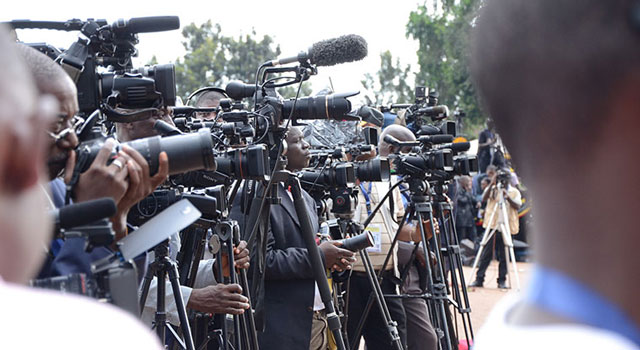Human Rights
Report Reveals Surge in Attacks on Media Freedom

The rule of law, a critical safeguard for free expression, press freedom, and journalists’ rights, is increasingly being manipulated to curtail media freedom and silence dissenting voices, according to a recent study by the Thomson Reuters Foundation.
The study, released on Thursday, outlines a disturbing increase in legal attacks on journalists and journalism. These attacks are often strategically used to suppress public interest reporting and assert control. The report identifies an expanding array of repressive legislative, regulatory, and other legal threats that significantly undermine journalists’ ability to work independently and freely, with dire consequences for both the journalists and their audiences.
Entitled “This Weaponization of the Law,” the report suggests that the COVID-19 pandemic and the conflict in Ukraine have provided opportunities for various actors to criminalize media practitioners, with the aim of suppressing scrutiny and consolidating power.
Global media freedom organizations have reported unprecedented numbers of imprisoned journalists. The Committee to Protect Journalists (CPJ) noted that 363 journalists were incarcerated by the end of 2022, while Reporters Without Borders, using different criteria, recorded 533 cases.
While only a few countries jail large numbers of journalists, legal assaults are occurring worldwide, including in established democracies. These threats range from harassment to “lawfare”— systematic legal action aimed at quashing critical reporting and suppressing fundamental rights.
The report highlights defamation as a significant threat to journalists, with laws being used globally to stifle public debate and shield influential figures from legitimate scrutiny. Online expression has become a particular focus for criminal defamation, as authorities incorporate such offenses into cybersecurity, anti-terrorism, and hate speech laws. Civil defamation cases have also risen, often imposing excessive damages that lead to self-censorship and automatic apologies to avoid lawsuits.
In Uganda, for example, the Daily Monitor recently paid 300 million shillings to President Museveni to settle a defamation suit stemming from an article published during the COVID-19 pandemic. Museveni donated the funds to his political party, NRM.
This concerning development aligns with the reversal of a previous trend toward decriminalizing defamation laws seen in the 2000s and early 2010s. The report notes that several countries have reintroduced criminal defamation offenses, expanded penalties under existing laws, or revitalized dormant laws to target journalists.
Strategic Litigation Against Public Participation (SLAPPs) frequently use defamation charges to intimidate and exert undue pressure on the media, regardless of the outcome.
Governments worldwide are tightening speech-related laws to protect those in power from criticism. Over the last five years, at least 43 countries have enacted or amended legislation to expand penalties for defamation, anti-terrorism, national security, false news, public disorder, and cybercrimes—laws that are frequently misused to prosecute journalists.
These “catch-all” national security or public order offenses have become a preferred means of prosecuting journalists, often criminalizing expression based on its potential impact on national security or public order. Such laws are frequently used to suppress domestic political dissent.
